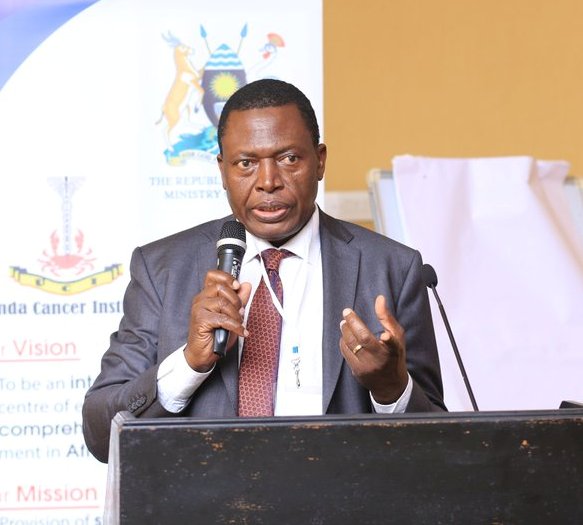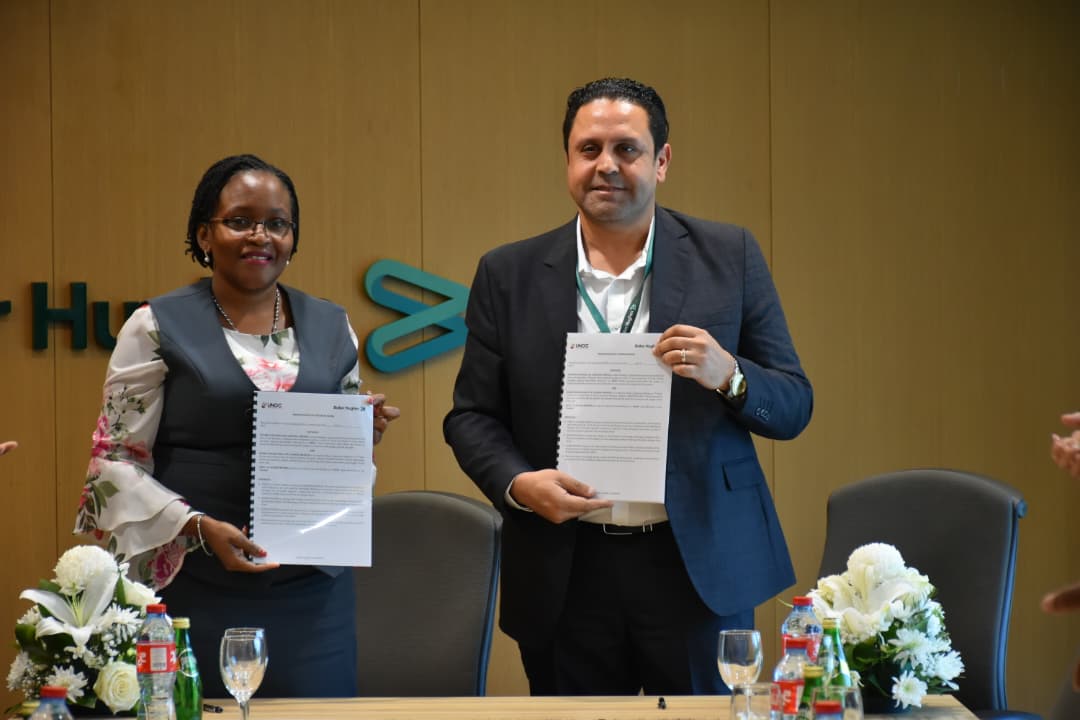Consumption of alcohol and taking hot tea are risk factors causing oesophageal cancer
Dr. Charles Olaro, Director General Health Services at the Ministry of Health, emphasized the alarming statistics, stating that the risk of esophageal cancer in sub-Saharan Africa ranges from 20-50%, with men being at a particularly high risk.

The Uganda Oesophageal Cancer Symposium, held on June 13, 2025, in Kampala, shed light on the growing burden of esophageal cancer in sub-Saharan Africa and highlighted key risk factors, including the consumption of alcohol and hot tea.
The symposium, themed “Leveraging Science, Innovation & Technology to address the burden of Oesophageal Cancer in Sub Saharan Africa,” brought together key stakeholders, including government officials, medical experts, and international partners, to discuss strategies for addressing the disease.
Dr. Charles Olaro, Director General Health Services at the Ministry of Health, emphasized the alarming statistics, stating that the risk of esophageal cancer in sub-Saharan Africa ranges from 20-50%, with men being at a particularly high risk.
He specifically identified smoking, alcohol consumption, and the consumption of hot tea as significant contributing factors to the development of the disease.
“The public needs to be aware that men are at high risk,” Dr. Olaro stated, underscoring the urgency of public health campaigns to raise awareness about these preventable risk factors.
The symposium served as a platform to reaffirm the Ugandan government’s commitment to advancing cancer care and to advocate for the greater adoption of technological innovations, research-led approaches, and region-wide collaborations to combat the high mortality rates associated with esophageal cancer.
Dr. Jackson Orem, Executive Director of the Uganda Cancer Institute, echoed the sentiment, emphasizing the importance of public awareness alongside technological advancements. “We should make sure our population is aware of oesophageal cancer, the treatment facilities and the risk factors. This should go hand in hand with harnessing technology,” he stated.
The event was a collaborative effort, attracting support from partners like the Ministry of Foreign Affairs, Olympus Medical Systems EMEA, and the Official Representation of the Republic of Uganda in the United States of America.
Ambassador Takuya Sasayama of Japan to Uganda acknowledged Uganda’s development over the years and highlighted the opportunities for collaboration in the fight against cancer through awareness campaigns.
Dr. David Fleischer, Chairman of the Board of the AfrECC Foundation, reiterated AfrECC’s commitment to training, research, clinical care, and public outreach in esophageal cancer management, working in collaboration with its partners.
Uganda’s Ambassador to Washington D.C, Amb. Robie Kakonge, framed the challenge of cancer as a human one, emphasizing the role of international collaboration. “International cooperation isn’t about charity, it’s about shared futures,” she stated, highlighting the importance of strategic partnerships and shared responsibility in achieving meaningful progress, especially in resource-constrained environments.
The symposium served as a crucial call to action, urging a multi-pronged approach involving public awareness campaigns focusing on modifiable risk factors like alcohol consumption and hot tea intake, alongside advancements in technology and collaborative research efforts, to address the growing burden of esophageal cancer in Uganda and across sub-Saharan Africa.
The discussions highlighted the urgent need to translate research into tangible public health interventions to reduce the incidence and improve the outcomes for patients affected by this devastating disease.







